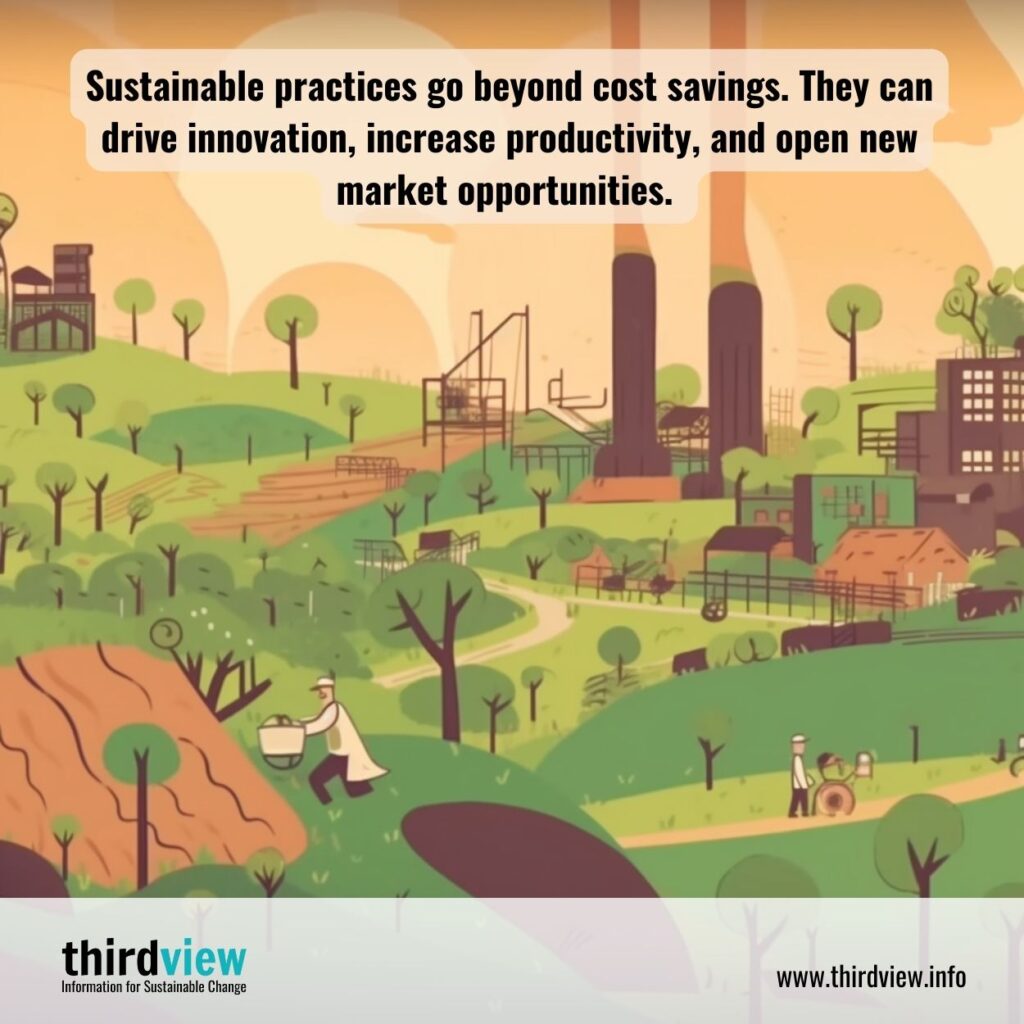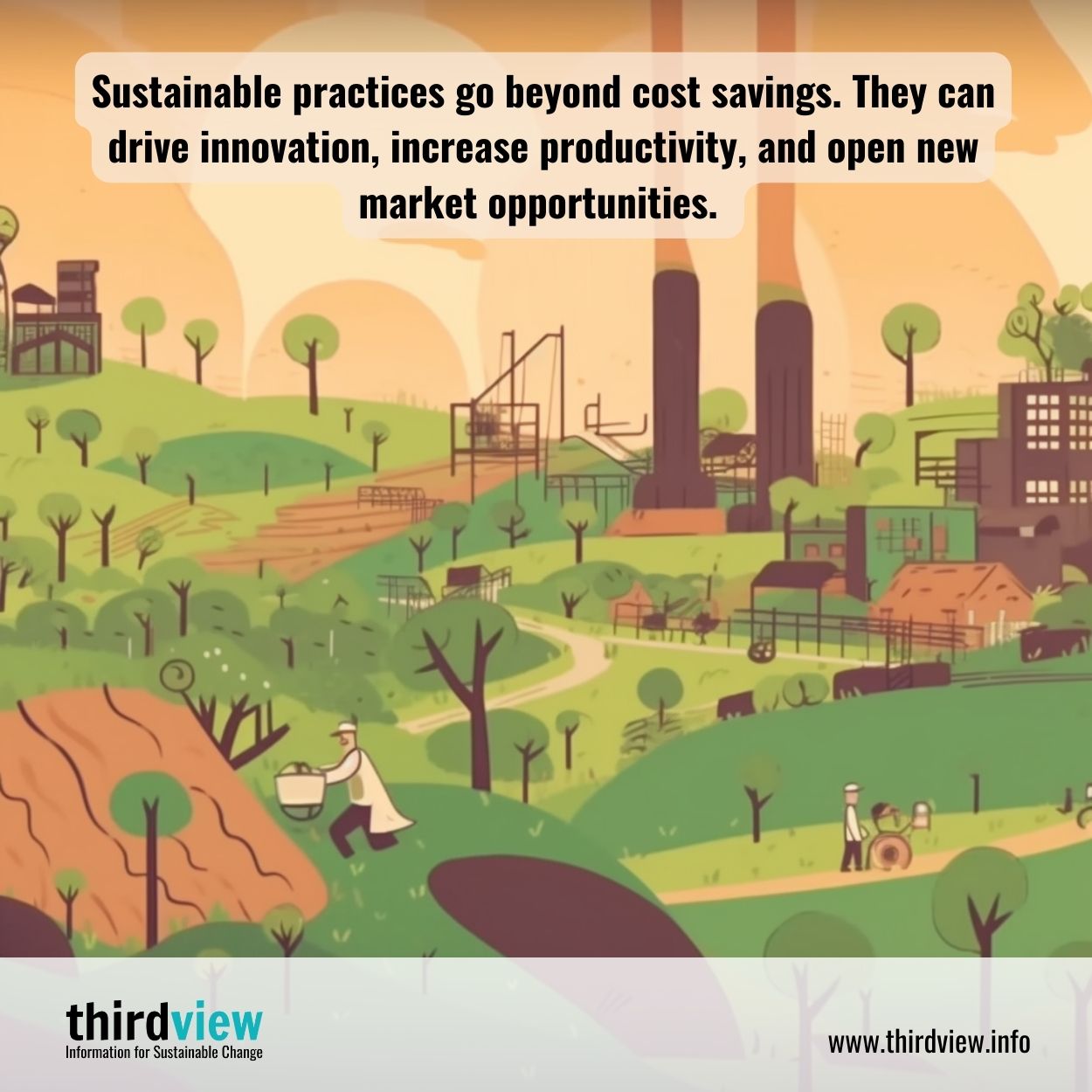Incorporating sustainable practices into your company’s operations doesn’t just benefit the environment, it can actually have a significant impact on your bottom line. While “greenwashing” or making environmentally friendly claims without following through on them can be harmful to your brand, true sustainability can improve your company’s reputation and financial success.
Cost Savings:
One of the most direct ways sustainability can improve your bottom line is by reducing costs. Simple changes like switching to LED light bulbs, using energy-efficient equipment, and reducing water usage can all lead to significant savings on utilities. Additionally, adopting sustainable packaging practices can also cut costs by minimizing waste and reducing shipping expenses.
Increased Productivity:
Sustainable practices can also improve employee productivity and engagement. Studies have shown that employees who feel a sense of purpose and moral obligation towards their work are more likely to be productive and loyal to their employer. Implementing sustainable initiatives like reducing paper usage and offering environmentally responsible transportation options can also improve workplace morale and retention rates.
New Market Opportunities:
As consumers become increasingly aware of the impacts of their purchasing decisions on the environment, they are more likely to choose sustainable products and companies. By incorporating sustainable practices into your production processes and marketing campaigns, your company can tap into this growing market and even attract new, environmentally conscious customers.
Innovative Solutions:
Focusing on sustainability can also drive innovation and problem-solving within your company. By challenging your team to find creative solutions to reduce waste and improve efficiency, you may find new and more profitable ways of doing business that you may not have otherwise considered. Embracing sustainable practices can also be a way of differentiating yourself from competitors and standing out in your industry.
Risk Mitigation:
Finally, sustainability can also help mitigate some of the risks associated with business operations. For example, incorporating sustainable supply chain practices can help ensure the continued availability and affordability of essential resources, reducing the risk of supply chain disruptions. Additionally, anticipating and addressing environmental issues can help avoid expensive legal battles and reputational damage down the line.
Adopting sustainable practices is an important step towards creating a better future for the planet, but it can also have significant benefits for your company’s financial health. By reducing costs, increasing productivity, accessing new markets, driving innovation, and mitigating risks, sustainability can improve your bottom line in ways beyond simple cost savings. Emphasizing sustainability can also improve your brand’s image and reputation, making it a win-win for both your company and the planet.


